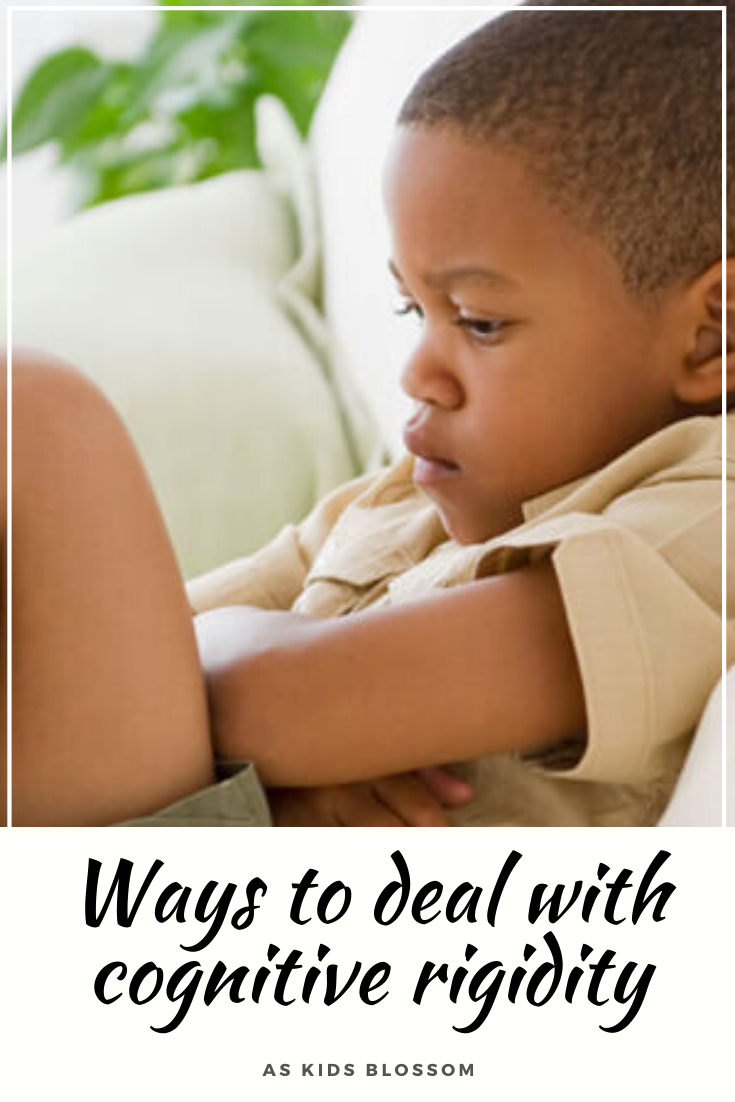Cognitive rigidity is the ability to deal with situations with a flexible attitude and try to view it from different perspectives. And it is usually something which kids with autism and ADHD struggle with.
What is Cognitive Ridigty in Autistic Kids?
Rigid behavior or thinking is one of the main symptoms to help diagnose a child with autism. This rigid behavior lacks flexible thinking and often causes tantrums and meltdowns. Rigidity in behavior or thinking leads to anger, anxiety, unable to self-calm and overreact to circumstances.
However, there are ways to help reduce rigid behavior and encourage a bendy nature in autistic kids.
Ways to deal with Cognitive Rigidity in Autistic Kids
It is quite challenging for the parents and even hurting to see their kid in pain. But we need to try and understand the situation from the kid’s point of view and then help him deal with it. This post will help parents by introducing some tips that can help deal with cognitive rigidity in autistic kids.
Deep Breaths
Help your child by letting him know that when he cries it is because he is feeling upset and feelings pass with time just like cars on a road. You can help him take control of his emotions through deep breathing. This is very common and can be exercised even when your kid is not upset. Do this regularly and let him know that even when adults get angry, this helps them calm down.
If your autistic child is having issues with handling emotions, you might want to read my post on Emotional Regulation in Kids with Autism.
Buy a Calendar
Get a calendar with big blocks along with the date and write down different events that are going to happen on different dates like for example birthdays, holidays, appointments, school days etcetera. Ask your child each morning to check the calendar. And if something out of the ordinary happens on a particular date, explain to him that not every day goes by as planned.
This exercise is really helpful in preparing the child for unexpected events and behavior and how to handle them.
Games
Games are also helpful in developing a flexible behavior in a child. Pick up an object and think of different ways to use it and pretend to play with it. Like, for example, break a branch from a tree and use it as a magic wand, quill, flute or pen. This will help him learn to view a thing from different perspectives and increase flexibility.
Make new rules
Kids with cognitive rigidity do not like rules and are not fond of following them. So why not make new rules in games. While playing Jenga instead of taking out blocks one by one, why not give them the blocks and ask them to make up something like a tower or a car maybe.
Matching games
I am sure everyone with kids has a set of blocks in their homes. Ask your kid to sort the blocks using different categories. You may ask your kid to sort the blocks by; color, size or shapes even. This will help him sort his problems or issues with a variety of solutions.
Introduce changes in daily routine
If your child sticks to a routine, help him go through some small changes every day. Suppose he has the habit of reading while having breakfast, ask him to go without reading and have breakfast in the terrace for a change. Ask him to direct you to the school from a different route. Introduce changes slowly, this will help him feel in charge and will help deal with anxiety as well.
Think with him
This is a very important exercise. Sit with your child and ask his opinions on different matters. You may ask him what we can cook for dinner or how we can clear up the mess; also try to give him choices. This will make him think about issues. And these questions can lead to many other issues to talk about like what can be done in a situation where we are not comfortable or how we can get someone’s attention if he is not paying attention etcetera and again give him choices to pick from. This is a quite healthy practice and makes him learn a lot.
I hope this article will help you deal with cognitive rigidity in autistic kids. If you notice your child is too rigid and not flexible and these strategies aren’t helping, I would love to help you determine your child’s individual needs. Please reach out to set up a free consultation. We are here to support you as you help your child blossom!
If you have any ideas on how to deal with cognitive rigidity in autistic kids, please join us in our FREE Facebook community!
If you enjoyed reading 7 Tips that help deal with Cognitive Rigidity in Autistic Kids, you might also enjoy reading:
Anxiety in Children: Symptoms, Types and Care
Emotional Regulation for Kids With Autism
